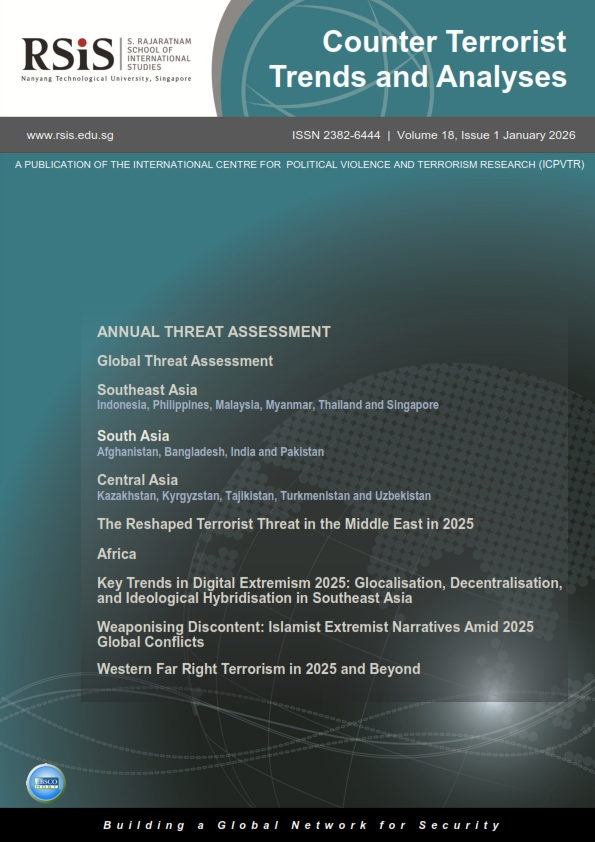
BUILDING A GLOBAL NETWORK FOR SECURITY
LATEST ISSUE

Counter Terrorist Trends and Analyses (CTTA) – Volume 18 Issue 01
This volume covers the following three broad themes for 2025’s terrorism landscape: significant global developments and trends; notable operational trends and developments; and the enduring salience of a holistic, integrated approach in dealing with violent extremism. A notable event was Israel’s sustained military campaign against Hamas in Gaza, that extended further into the Middle East. Israel severely degraded the militant group Hezbollah in Lebanon, including via tactically innovative “pager explosions” targeting its leaders. Offensives were also maintained against Hezbollah remnant ...
ALL ISSUES
LATEST FEATURED ARTICLES
Global Threat Situation in 2025
Selectively drawing upon the detailed regional analyses in the current volume, this overview covers the following three broad themes: 1) significant global developments and trends; 2) notable operational trends and developments; and 3) the enduring salience of ...
Indonesia
The overall threat posed by Indonesian terrorist organisations continued to decline in 2025. Largely the result of Special Detachment (Detasemen Khusus, or Densus) 88’s sustained pressure on pro-Islamic State (IS) groups and Jemaah Islamiyah (JI)’s decision to ...
Key Trends in Digital Extremism 2025: Glocalisation, Decentralisation, and Ideological Hybridisation in Southeast Asia
In 2025, the digital extremist ecosystem consolidated rather than evolved, entrenching trends of decentralisation, localisation and hybridisation across ideological lines. The Islamic State (IS) terrorist group refocused on geopolitical crises, amplifying Afric ...
Western Far-Right Terrorism in 2025 and Beyond
by Jacob Ware
Domestic terrorism, especially white supremacist and anti-government extremism, poses a considerable threat to the United States (US), Europe and other Western nations. As the second Donald Trump administration redefines US national security priorities, the thr ...
Click here for more articles ►




